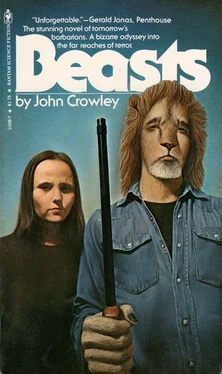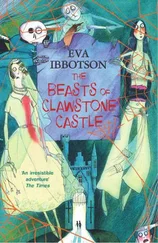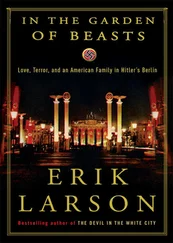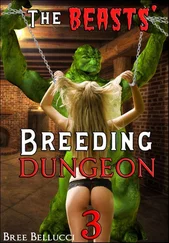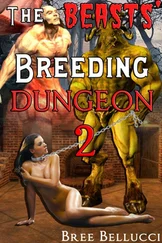“He had you, didn’t he?” Loren said.
“Well. I’m not much good now. I was never — strong, really, and you see I’m lamed now.”
“You seem to get around.”
“I’m also,” Reynard said as though not hearing this, “getting very old. I’m nearly thirty. I never expected a life-span that long. I feel ancient.” Smoke curled from his nostrils. “There is a hunt on for me, Mr. Casauhon. There has been for a long time. I’ve thrown off the scent more than once, but it’s growing late for me. I’m going to earth.” He smiled — perhaps it was a smile — at this, and the ignored ash of his cigarette fell onto the table. “Sten will need you.”
“What is it you wanted from Sten?” Loren asked coldly. He tried to fix Reynard’s eyes, but like an animal’s they wouldn’t hold a stare. “Why did you choose him? What for?”
Reynard put out the cigarette with delicate thoroughness, not appearing to feel challenged. “Did you know,” Reynard said, “how much Sten means in the Northern Autonomy? And outside it too?” He moved slowly in his chair; he seemed to be in some pain. “There is a movement — one of the kind that men seem so easily to work up — to make Sten a kind of king.”
“King?”
“He’d make a good one, don’t you think?” His long face split again in a smile, and closed again. “That he’s an outlaw now, and hunted by the Federal, is only appropriate for a young king — a pretender. The Federal has mismanaged their chance in the Autonomy, as it had to. Sten seems to people everywhere to be — an alternative. Somehow. Some kingly how. Strong, and young, and brave — well. If there are kings — kings born — he’s one, Don’t you agree?”
From the time Loren had opened the North Star magazine he had been a subject of Sten’s, he knew that. That Sten must one day pick up a heritage that lay all around him he had always known too, though he had tried to ignore it. He felt, momentarily, like Merlin, who had trained up the boy Arthur in secrecy; saw that what he had trained Sten to be was, in fact, king. There wasn’t any other job he was suited for.
“It’s a fact about kings,” Reynard said, “That they must have around them a certain kind of person. Persons who love the king in the king, but know the man in the king. Persons for whom the king will always be king. Always. No matter what. I don’t mean toadies, or courtiers. I mean — subjects. True subjects. Without them there are no kings. Of course,”
“And you? Are you a king’s man?”
“I’m not a man.”
Already the northern afternoon was gathering in the light. Loren tried to count out the feelings contending in him, but gave it up. “Where is he now?”
“Between places. Nowhere long.” He leaned forward. His voice had grown small and exhausted, “This is a difficulty. He needs a place, a place absolutely secret, a base. Somewhere his adherents could collect. Somewhere to hide — but not a rathole.” Again, the long, yellow-toothed smile. “After all, it will be part of a legend someday.”
Loren felt poised on the edge of a high place, knowing that swarming up within him were emotions that would eventually make him step over. He drank quickly and slid the empty glass away from him on a spill of liquor. “I know a place,” he said, “I think I know a place.”
Reynard regarded him, unblinking, without much interest, it seemed, as Loren described the shot tower, where it was, how it could be gotten to; he supposed the food, the cans anyway, and the cell heater would still be there.
“When can you be there?” Reynard said when he had finished.
“Me?” Reynard waited for an answer. “Listen. I’ll help Sten, because he’s Sten, because… I owe it to him. I’ll hide him if I can, keep him from harm. But this other stuff.” He looked away from Reynard’s eyes. “I’m a scientist. I’ve got a project in hand here.” He drew in spilled liquor on the table — no, not that name, he rubbed it away. “I’m not political.”
“No.” Reynard, unexpectedly, yawned. It was a quick, wide motion like a silent bark; a string of saliva ran from dark palate to long, deepcloven tongue. “No. No one is, really.” He rose, leaning on his stick, and walked up and down the small, smelly barroom — deserted at this hour — as though taking exercise. “Geese, isn’t it? Your project.” He stopped, leaning heavily on the stick, holding his damaged foot off the ground and turning it tentatively. “Isn’t there a game, fox and geese?”
“Yes.”
“A grid, or paths…”
“The geese try to run past the fox. He catches them where paths join.
Each goose he catches has to help him catch others.”
“Ah. I’m a — collector of that kind of lore. Naturally.”
“My geese,” Loren said, “are prey for foxes.”
“Yes?”
“And they know it. They teach it — the old ones teach the young. It doesn’t seem to be imprinted — untaught goslings wouldn’t run from a fox instinctively. The older ones teach them what a fox looks like, by attacking foxes, in a body, and driving them off. The young ones learn to join in. I’ve seen my flock follow a fox for nearly a mile, honking, threatening. The fox looked very uncomfortable,”
“I’ll leave you now,” Reynard said. If he had heard Loren’s story he didn’t express it. “The plane will be going. There are still a few things I have to do.” He went to the door.
“No rest for the wicked,” Loren said.
Reynard had been walking out of the bar without farewell. He turned at the door. “Teach your goslings,” he said. “Only be sure you know who is the fox,”
When he had gone out into the pall of the afternoon — tiny, old, impossible — Loren went to wake the bartender and have his glass filled again. The letter where it lay in his breast pocket seemed to press painfully against his heart.
Nothing is more soothing to a scientist than the duplication of another scientist’s results. When Loren had left the empty brown mansion, he had thought only of a place to lose himself, a far, unpeopled place to hide; but he knew he would have to occupy himself as well, engage all his faculties in a difficult task, if he was to escape — even momentarily — the awful rain he seemed always to be standing in when he thought of Sten and Mika.
They meant what they had said: they didn’t come back. He had known they wouldn’t. After ten days had passed, and a new fall of snow had covered their traces, he called the Autonomy police and reported them suddenly missing. The police forces were in the process of being reorganized, and after some lengthy interrogations, in which he communicated as little as he could without arousing suspicion, the matter seemed to be dropped, or filed, or forgotten amid larger bureaucratic struggles. He thought once during a police interview (Federal this time) that he was about to be beaten into a confession, a confession of something; he almost wished for it: there was no one else to punish him for what he had done.
What had he done?
He drew his almost-untouched government salary, got a small, reluctant grant from Dr. Small, and went north out of the Autonomy to the breeding grounds of the Canada geese. One of the great ethologists of the last century had made extensive observations of the European greylag goose; his records were famous, and so were his conclusions, about men and animals, instinct, aggression, bonding. He had extended his conclusions to all species of the genus Anser, the true goose. The Canada goose isn’t Anser but Branta. It would take months — healing, annealing months alone — to compare the century-old observations of Anser behavior with that of Branta. The resulting paper would be a small monument, a kind of extrusion out of misery, like an oyster’s pearl.
Читать дальше
